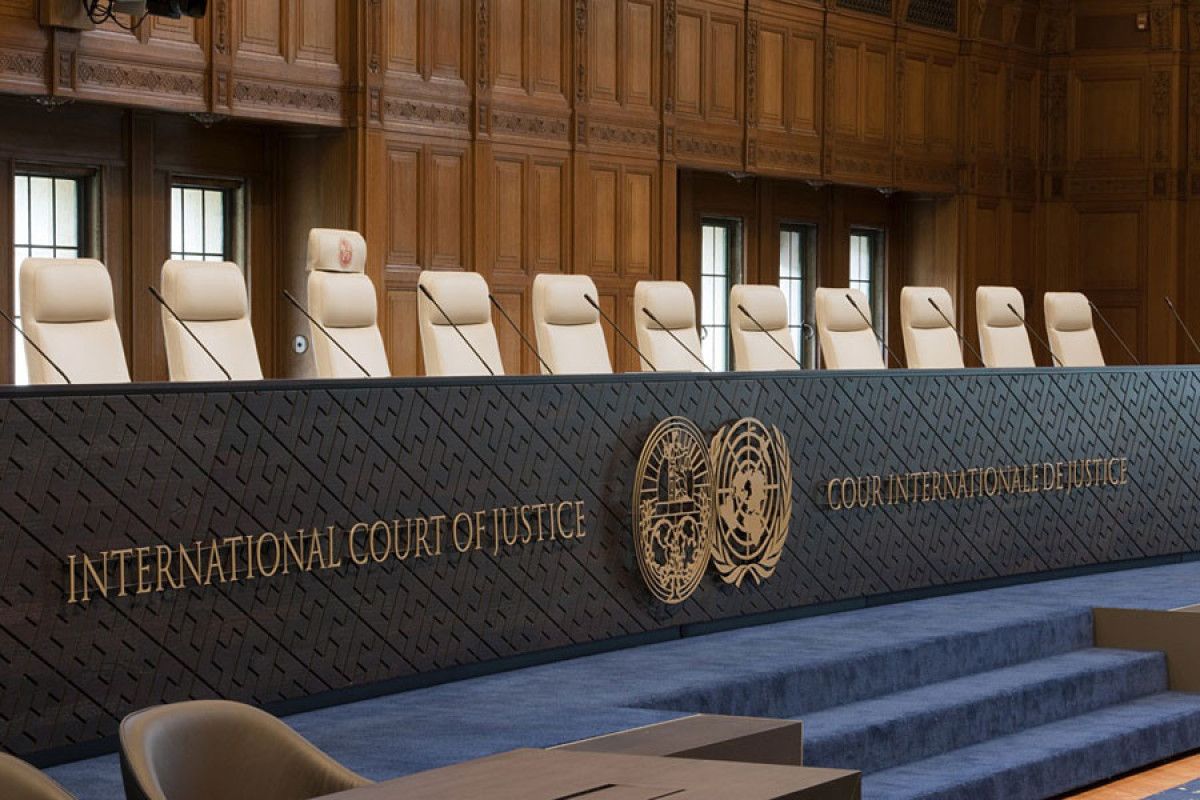Legal fiasco of world Armenians - how International Court of Justice deflates Yerevan

By Emin Sevdimaliyev, Day.az
Armenia has suffered another collapse. The application of Armenia on the issue of the functioning of the Lachin border checkpoint was rejected by the International Court of Justice.
From the very beginning, such a decision should not have been in doubt. After all, the issue of territorial integrity is one of the key issues for the functioning of the international community of countries. The main international document regulating the inviolability of borders is the Charter of the United Nations (UN). In particular, Article 2(4) of the UN Charter expressly prohibits Member States from using force against the territorial integrity or political independence of any state.
"All Members of the United Nations shall render its fullest assistance in all actions taken by it in accordance with this Charter, and shall refrain from assisting any State against which the United Nations is taking preventive or enforcement action," states Article 2(4).
Also in this context, we can mention the final act of the Helsinki Conference on Security and Cooperation in Europe in 1975, which approved the principles of respect for the territorial integrity of states, non-use of force and inviolability of borders.
Following these principles, the International Court of Justice
rejected the arguments of Armenia, which initially were not
logical. If you think about it, Yerevan initially built its
arguments on the shaky ground of the terms of the Tripartite
Statement, which it itself systematically violates many times.
Ətraflı
Also, the Armenian authorities ignore the fact that territorial integrity is not a subject of bargaining and negotiations, and cannot be changed by any signed international document.
It is important to note that the decision of the court in The Hague gave unambiguous support to the position of Azerbaijan. By rejecting Yerevan's petition, the International Court of Justice killed Armenia's last hope of finding at least some support for its illegal demands.
The logic of the Armenian political establishment raises serious doubts, since by deciding to support Yerevan's demand, the MC would have made several serious mistakes. First, taking a decision against Azerbaijan would violate Article 2(4) that we were talking about.
Also, it would be a grave breach of Article 2(7) of the Charter, which reads as follows: “This Charter does not in any way give the United Nations the right to intervene in matters which are essentially within the domestic jurisdiction of any State, and does not require Members United Nations to submit such cases for resolution under this Charter; however, this principle shall not affect the application of coercive measures under Chapter VII." It should be noted that Chapter VII is devoted to "Actions regarding the threat to the peace, violations of the peace and acts of aggression", which does not fit the situation, since Azerbaijan seeks to ensure a peaceful situation on its territory.
The third point is that the adoption of an anti-Azerbaijani decision would discredit the court and the UN charter, which, for obvious reasons, the body of the UN judicial system would not agree to.
Given these factors, the hopes of the Armenian side for a decision in its favor seemed very doubtful. In the end, it happened, and the court made the only right decision, pointing out to Armenia the dead end and illogicality of its thinking.
---
Follow us on Twitter @AzerNewsAz
Here we are to serve you with news right now. It does not cost much, but worth your attention.
Choose to support open, independent, quality journalism and subscribe on a monthly basis.
By subscribing to our online newspaper, you can have full digital access to all news, analysis, and much more.
You can also follow AzerNEWS on Twitter @AzerNewsAz or Facebook @AzerNewsNewspaper
Thank you!
